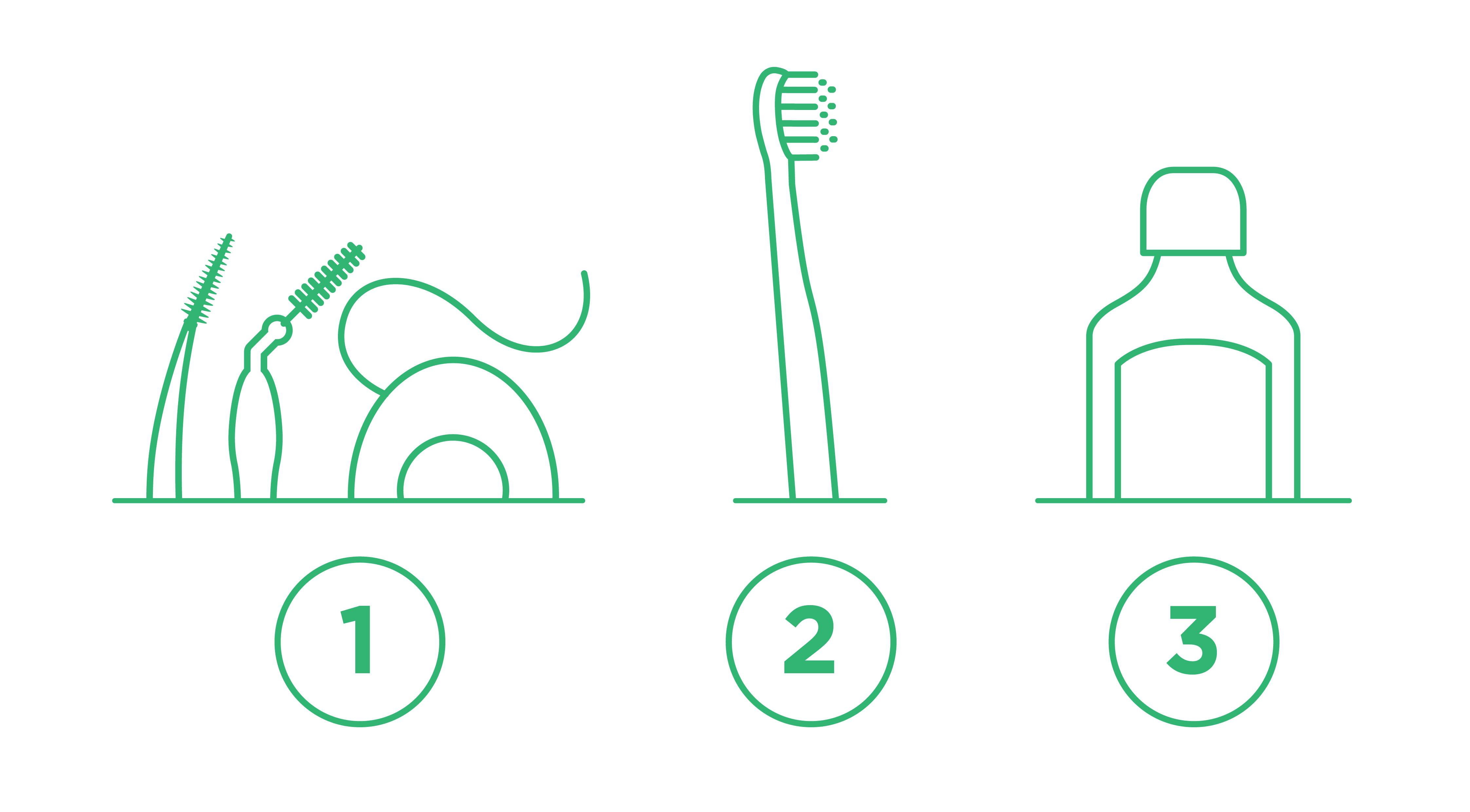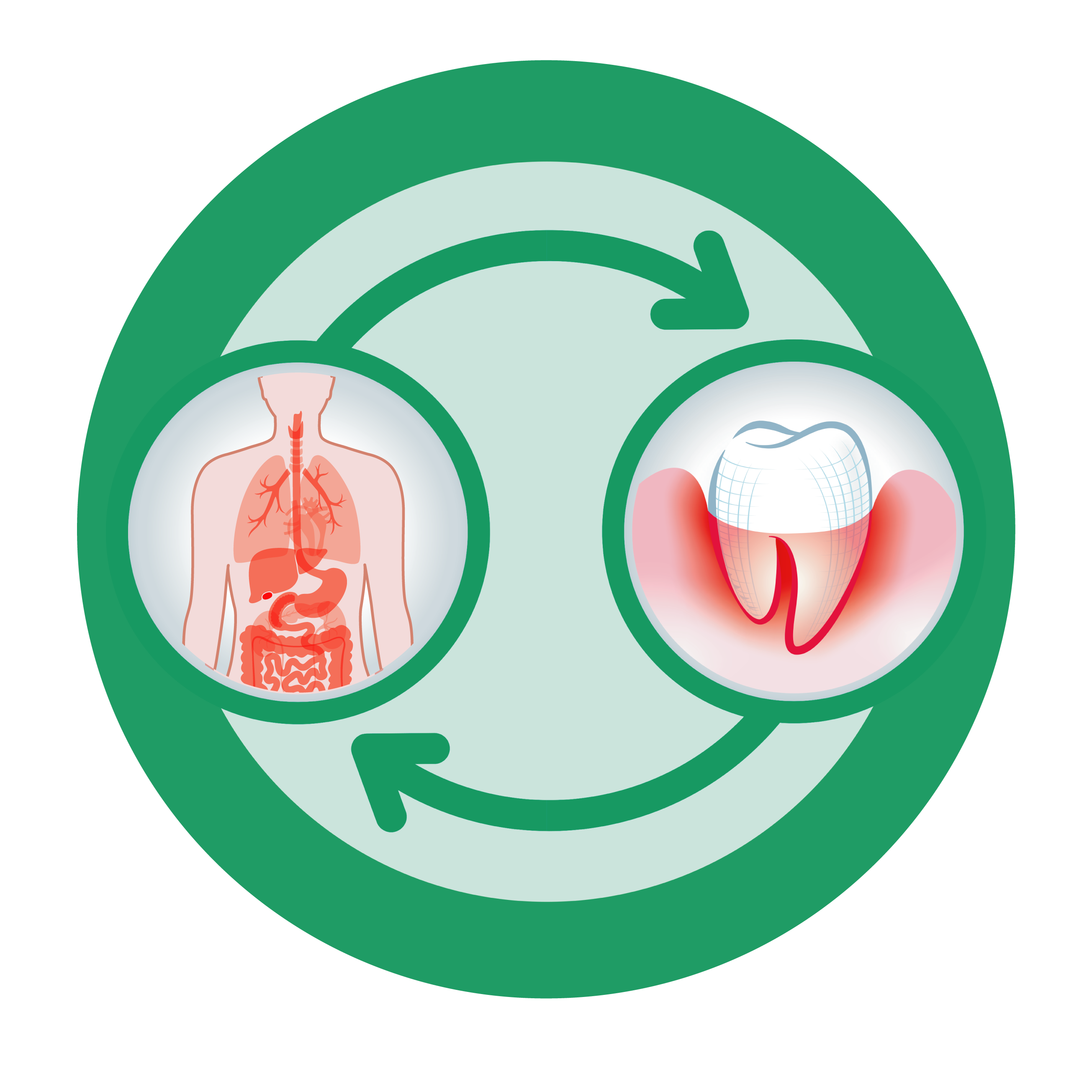
3 Simple Ways to Improve Gum Health
While keeping teeth healthy and strong is important, it’s crucial not to overlook giving equal attention to your gums. Together with your jawbone, they form the foundation of your teeth. Maintaining gum health helps to prevent your teeth from becoming loose.

But that’s not all your gums do for you. In a way, your gums are also a gateway to the rest of your body.
Gum diseases – also known as gingivitis and periodontitis – are associated with several systemic conditions, such as diabetes and cardiovascular disease.
So, what is the best way to maintain or improve gum health? Let’s have a look at what you can do for yourself.
They are experts in identifying gum disease and can perform professional cleaning. Even if your gums are already healthy, dental professionals know best how to proactively maintain gum health
Even when your oral health is in a good place, your mouth is full of bacteria. This isn’t necessarily a bad thing, as most of those microorganisms actually belong there. You need these “good” bacteria to keep your mucosa healthy, fine-tune your immune system, and even help you digest food.
However, if left alone for too long, bacteria on your teeth can accumulate and form a sticky white substance known as plaque. Proper oral hygiene removes this plaque on a regular basis, which helps the good bacteria to stay dominant, not giving “bad” bacteria the chance to accumulate.
Without proper oral hygiene, these harmful bacteria can take over and cause an imbalance in your mouth’s ecosystem. This will trigger your immune system to respond with inflammation, leading to gingivitis. If left untreated, gingivitis eventually develops into periodontitis.
Removing plaque on a regular basis is crucial to maintaining gum health, and the best way to do that is by brushing your teeth twice per day with a manual or electric toothbrush, as well as cleaning in between your teeth at least once per day with an interdental brush, pick or floss. As mentioned earlier, your oral care professional can give you tailored advice on techniques and oral hygiene tools that suit you best.
It should be noted that sometimes, such as following tooth extraction or oral surgery, brushing is simply not possible. In those cases, it’s still important to keep your oral bacteria in check.
A mouthwash that contains ingredients such as chlorhexidine or CPC may help bridge that time until you can resume regular brushing and interdental cleaning. Always follow the advice of your oral care professional before using one of these specially formulated mouthwashes, as they are not typically recommended for long-term use.
For example:
- Smoking and vaping: Both smoking and vaping are significantly detrimental to oral health, particularly to the gums. These habits can lead to reduced blood flow to the gums, delaying healing after dental procedures, aggravate inflammation and thereby increasing the risk of periodontal disease and eventually tooth loss.
- Alcohol consumption: Excessive alcohol consumption can irritate gum tissues and exacerbate existing gum problems. It can also lead to a decrease in saliva production, which is essential for neutralising acids and cleaning away food particles, placing you at risk of gum diseases as well as dental caries.
- Proper nutrition: A balanced diet rich in vitamins, minerals, fibres, and antioxidants can boost gum health by strengthening the immune system and reducing inflammation. Conversely, a diet high in sugar and processed foods can promote the growth of harmful bacteria in the mouth, leading to plaque buildup and eventually gum disease.
- Sleep: Adequate sleep is crucial for overall health, including gum health. Lack of sleep can weaken the immune system, making it harder for the body to fight off infections, including those that can lead to gum disease.
- Physical activity: How exactly remains to be understood, but regular physical activity can help reduce the risk of periodontal diseases. It improves blood circulation, strengthens the immune system, and reduces inflammatory processes and markers, which is vital for maintaining healthy gums.
For example, diabetes very much increases the risk for periodontitis, as increased blood glucose levels are associated with increased inflammation in the gums. However, interestingly, when you are diabetic but with good blood glucose control, research shows that this risk is significantly lower compared to when you have poor blood glucose control.
In other words, if you are able to take care of your body’s systemic condition, you indirectly also take care of your gum health, and vice versa.





